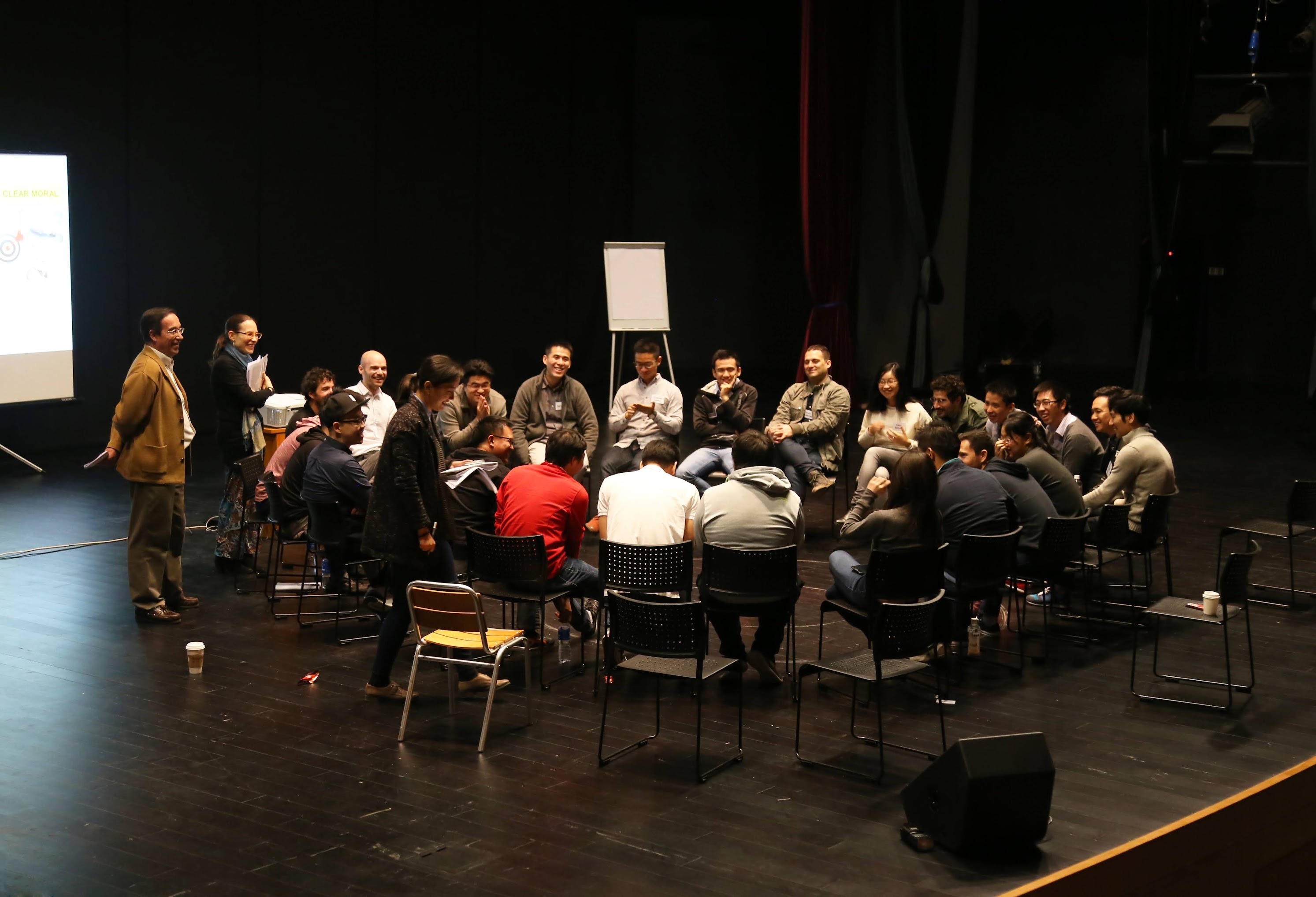Five Leadership Defining Locations in China
In a post-COVID world, providing effective leadership is more complex and demanding than ever. No matter your function, role or industry, the very nature of global business continues to evolve at breakneck speed. Inevitably, today’s leaders are required to do more than keep up; they must anticipate the future needs of their followers and the wider organisation.
If, as the old saying goes, familiarity breeds contempt, then variety breeds adaptability, and an appreciation of new learning experiences. This is why, on CEIBS MBA, we focus intently on providing students with a range of learning environments, opening up novel ways to practise, hone and ultimately refine their leadership capabilities and potential. Check out five-leadership defining locations that our MBA students explore on the MBA journey below.
01
The Gobi Desert
Much like the human body, a person’s true capacity for leadership isn’t fully tested until they are placed in extremely challenging circumstances. The Gobi Module: Leadership in Action module is designed to let students take their personal awareness of their leadership capabilities to the next level. By undergoing adversity and uncertainty, they will learn how to lead their team while surviving in one the harshest and most challenging natural environments on the planet. This will strengthen their sense of crisis leadership and teamwork, while building self-awareness through the testing of their personal limits, physically, mentally and emotionally.

"Being with your peers and being tested in a controlled life-or-death situation is pretty intense – it’s definitely an experience that sticks with you. In the classroom, it’s fairly easy to imagine what you would do in any hypothetical business scenario, but when the pressure is that high, it shows you what kind of leader and what kind of person you really are." Mayuko Kawata, CEIBS MBA 2022
02
CEIBS Executive Lounge
Leadership isn’t always broadcasted forcefully and dramatically during high-stakes scenarios. Today’s leader must be equally adept at delivering the right message, and setting the right example, in quieter moments. Whether engaging with large teams or working one-to-one with an employee, leaders are expected to be relatable and approachable. They must be skilled listeners who are just as keen to absorb what their staff have to say as they are to make their own voice heard.
The CEIBS Executive Lounge along with the many Executive Forums held on campus each year provide students and alumni with unique opportunities to hear directly from some of China’s most inspiring business leaders.
Watch the clip below to see how Apple Greater China’s Managing Director Isabel Ge Mahe made her transition to leadership after meeting Steve Jobs.
03
The Stage
Leaders stand in the limelight. They are constantly in the eye of their employees, investors, the media and many other sources of scrutiny. While leadership should always come from a place of authenticity, leaders are required to project confidence and may at times need to present themselves in ways that may not come to them naturally. Acting is the art of self-presentation and connecting with an audience, elements that are essential to displaying good leadership.
In the MBA programme, this is explored in the highly experiential module: Leadership and Acting: Unleashing your Leadership Potential through Acting Techniques. By physically taking to the stage, students learn how to express their best and authentic selves by cultivating self-awareness, body language, and voice control, while also learning how acting techniques can make them a more convincing, relatable and empathetic leader.

“The leadership and acting elective was a unique mix of theory and practical application, and an all-round good time. Taking to the stage, with the spotlight on us was definitely an innovative approach to leadership that I would take again in an instant.” Matthew Seresin, CEIBS MBA 2019
04
The Rowing Clubhouse
Nestled on the banks of a small river in Pudong lies a rowing clubhouse long used by CEIBS EMBA, Global EMBA and EE programmes to cultivate leadership capabilities amongst CEIBS students. After all, a rowing competition highly reflects the competitive world of business, whereby even the strongest individuals cannot rely on their strength alone to be successful. So, how can the coxswain best steer, motivate and drive their crew to victory? CEIBS leadership professors explore this very challenge and help MBA students reflect on their performance whilst drying off in the clubhouse after the race.

“Leadership cannot be taught; it can only be learnt from taking actions. That’s the main reason why we take the MBA students onto the water. The cognition is embodied with sensations, which really helps to takeaways on communication, teamwork, self-awareness and resilience to sink in.” Michelle Zheng, CEIBS Assistant Professor of Organisational Behaviour
05
And finally... the classroom
As the beating heart of any full-time MBA programme; classrooms, lecture theatres and discussion rooms on campus offer students the chance to step into the shoes of a CEO to debate case study strategies with peers coming from diverse cultures, industries, and functions.
In addition to the compulsory modules in Organisational Behaviour, the classroom is also the starting point for many compulsory activities on the MBA, including the leadership journey, career development programme, Integrated China Strategy Project (ICSP) and mentorship pairing. Students can then choose the further dive into leadership electives in Creativity and Design Thinking, Developing High Performing Teams and Organisations and Human Resource Management, to name a few.
“Let’s be clear, developing leadership is not just for those senior executives already in charge of entire departments. At CEIBS, when we design the MBA curriculum, we want to prepare all of our students to face the many difficult decisions that are on the horizon as we venture into a changing world. Whatever the future brings, we want business leaders who act with purpose, resilience, empathy and respect to be the ones responsible for writing tomorrow’s history.” Sebastian Schuh, CEIBS Professor of Organisational Behaviour, Department Chair of Organisational Behaviour and Human Resource Management

















